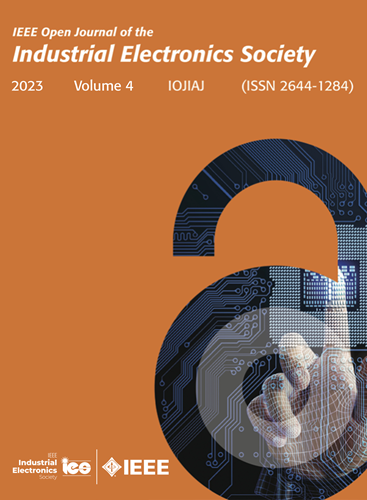FDI攻击下基于轮询的AC/DC MG协同弹性控制
IF 7.2
1区 工程技术
Q1 AUTOMATION & CONTROL SYSTEMS
引用次数: 0
摘要
研究了基于轮询(RR)的交/直流微电网在虚假数据注入(FDI)攻击下的协同弹性二次控制问题。为了解决这一问题,提出了一种由分散迭代观测器、RR调度协议和分布式弹性二级控制器组成的协同弹性控制方法。具体来说,首先设计了一个分散迭代观测器来估计交流母线电压幅值、交流母线频率、双向互连变换器有功/无功功率和FDI攻击的状态。然后,引入RR调度协议来减少bic之间的通信。基于设计的迭代观测器和RR调度协议,设计了分布式弹性二级控制器来补偿FDI攻击的影响。在FDI攻击下,与已有的混合交直流电机弹性控制策略相比,本文提出的弹性协同控制方法具有更好的暂态性能和更少的通信。最后,通过实时仿真器OPAL-RT的实验验证了该方法的有效性。本文章由计算机程序翻译,如有差异,请以英文原文为准。
Round-Robin-Based Cooperative Resilient Control for AC/DC MG Under FDI Attacks
In this article, the Round-Robin (RR) based cooperative resilient secondary control problem for ac/dc microgrid (MG) under false data injection (FDI) attacks is solved. To solve the problem, a cooperative resilient control method is proposed, which consists of a decentralized iterative observer, a RR scheduling protocol, and a distributed resilient secondary controller. Specifically, a decentralized iterative observer is first designed to estimate the state of the ac main bus voltage amplitude, ac bus frequency, bidirectional interlinking converter (BIC) active/reactive power, and FDI attacks. Then, a RR scheduling protocol is introduced to reduce communication among BICs. Based on the designed iterative observer and the RR scheduling protocol, a distributed resilient secondary controller is designed to compensate the influence of FDI attacks. Compared with existing resilient control strategies in hybrid ac/dc MGs under FDI attacks, the proposed resilient cooperative control method can exhibit better transient performance with less communication. Finally, the efficacy of the proposed approach is confirmed through experiments in a real-time simulator OPAL-RT.
求助全文
通过发布文献求助,成功后即可免费获取论文全文。
去求助
来源期刊

IEEE Transactions on Industrial Electronics
工程技术-工程:电子与电气
CiteScore
16.80
自引率
9.10%
发文量
1396
审稿时长
6.3 months
期刊介绍:
Journal Name: IEEE Transactions on Industrial Electronics
Publication Frequency: Monthly
Scope:
The scope of IEEE Transactions on Industrial Electronics encompasses the following areas:
Applications of electronics, controls, and communications in industrial and manufacturing systems and processes.
Power electronics and drive control techniques.
System control and signal processing.
Fault detection and diagnosis.
Power systems.
Instrumentation, measurement, and testing.
Modeling and simulation.
Motion control.
Robotics.
Sensors and actuators.
Implementation of neural networks, fuzzy logic, and artificial intelligence in industrial systems.
Factory automation.
Communication and computer networks.
 求助内容:
求助内容: 应助结果提醒方式:
应助结果提醒方式:


